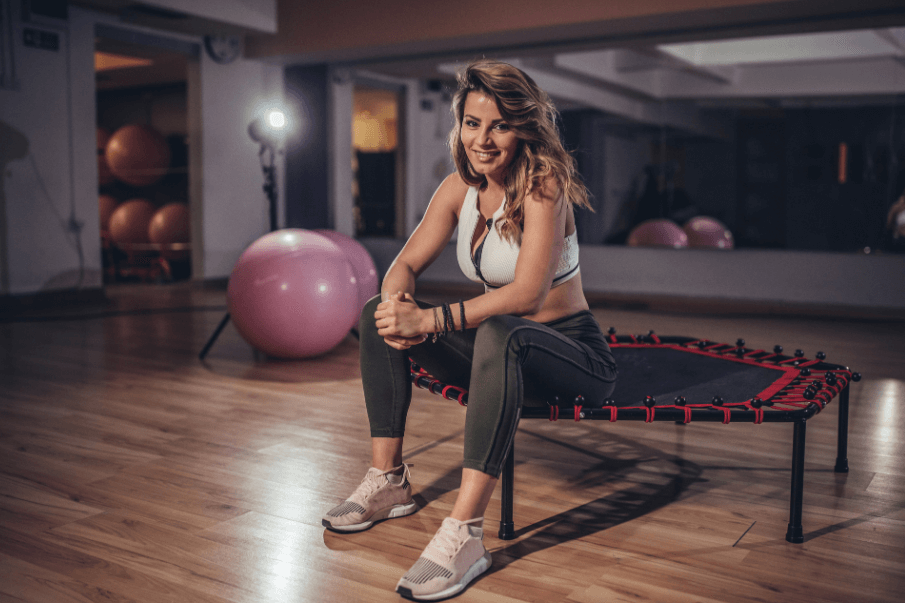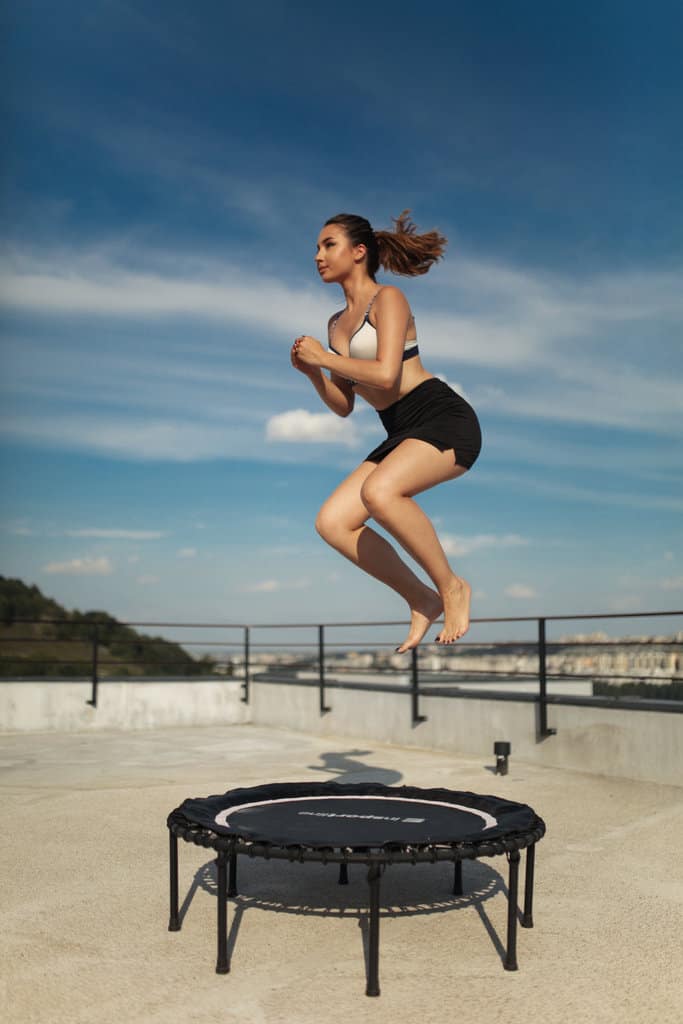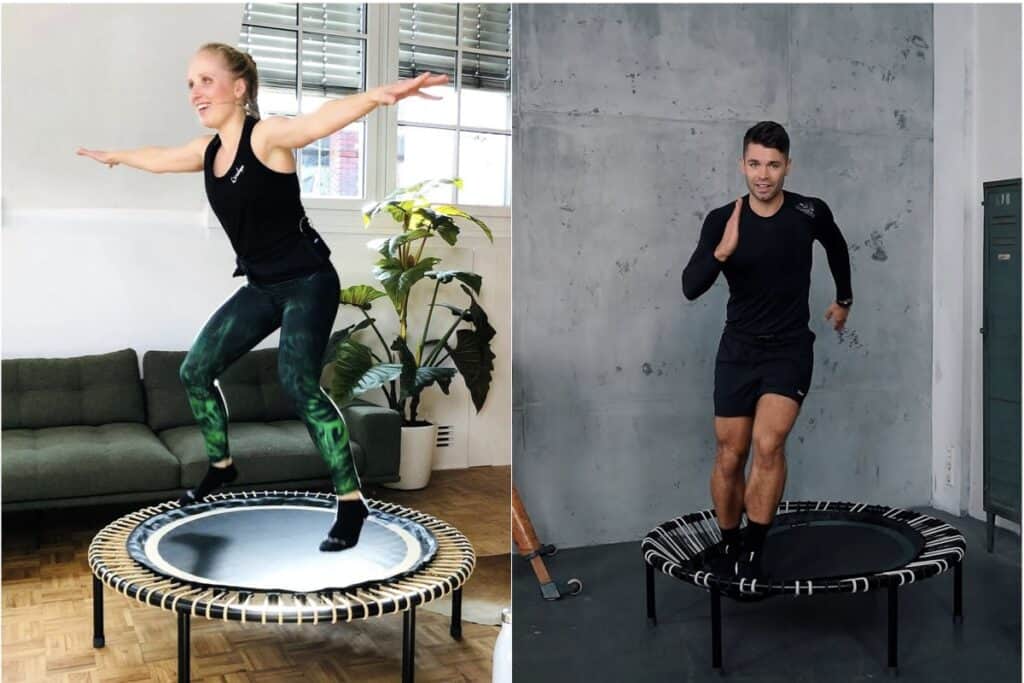Can I Rebound Before Bed?
If you’re trying to get the most from your home workout, you might be wondering, Can I rebound before bed? After all, exercise is known to improve sleep, so it surely makes sense to do it last thing at night.
In this article, we’ll look at whether this really is the best time to use the best rebounders and, if not, when you should do it.
Can I Rebound Before Bed? Nothing is stopping you from rebounding before bed, although doing it right before you plan to sleep might not be the best idea. After all, any exercise that raises your heart rate will wake you up, and it could take some time before you feel relaxed enough to sleep.
One study found that lifting weights at night led to better quality sleep than doing it in the morning. However, rebounding is a purely aerobic exercise, so we can only use the study’s results to a certain extent.
Then, of course, we must consider the most effective way to use your free time. After all, rebounding before bed generally guarantees you have the time to perform the workout, whereas doing it in the morning could mean having to wake up earlier. This is more a matter of preference, though.
Ready to start your rebounder weight loss journey? Try out our 8-week rebounder program!


What Time of Day Should I Rebound?
There’s no one answer as to when is the best time of day to use your rebounder or mini trampoline, or do any exercise for that matter. Let’s look at some of the pros and cons of exercising at different times of day.
Rebounding in the Morning
The morning is a common time for many people to exercise. One benefit is that being active first thing can improve your activity levels throughout the day, as demonstrated by one study. The same study also found that morning exercise reduced the participants’ desire for sugary and fatty foods.
Also, aerobic exercise such as rebounding releases endorphins. Exercising in the morning means you’ll start your day with these, giving you a much needed mood boost.
One study also found that exercising at 7am led to better quality sleep than performing the same exercise in the evening. While this contrasts against the study mentioned earlier, this one focuses on blood pressure and aerobic exercise, so is perhaps more relevant.

Rebounding in the Afternoon and Evening
On the other hand, your body’s performance is at its peak in the afternoon. Your body temperature is at its highest, as are oxygen uptake and reaction speeds.
In the late afternoon, your blood pressure and heart rate are at their lowest points, meaning there’s less chance of injury from aerobic exercises.
Plus, as mentioned, it might just be easier to fit a workout into your evening routine. After all, it’s pointless stating that one time leads to better sleep than another if you have to wake up extra early to exercise!
When is it Best to Rebound?
As you can see, a case can be made for rebounding at any time of day. However, returning to the topic of this article, rebounding before bed, the answer is probably no. You should ensure your body has some kind of cool down period after rebounding, so you should try to go straight to sleep.

However, deciding whether to rebound in the morning, afternoon or evening is completely up to you. It mainly depends on when you can fit it into your schedule. From a sleep quality perspective, there’s evidence that morning rebounding is better. But from a workout quality perspective, the afternoon makes more sense.
You will often find that rebounder classes are scheduled in the evening to work for peoples busy schedules so it won’t be too disrupting to your sleep.
If you are looking for a low intensity workout for before bed, check out this useful routine:
Rebounding before Bed
The bottom line is that, providing you’re actually exercising, rebounding before bed is possible and the time of day doesn’t matter too much. The most important thing is that you rebound as part of a larger exercise routine that offers variety and plenty of cardio.
So, try rebounding at different times of day and see what works best for you.
An ex-triathlete, fitness coach and writer with a Masters in Sports Physiology. Fitness is my passion and I've had my fair share of home fitness equipment tried and tested!



One Comment